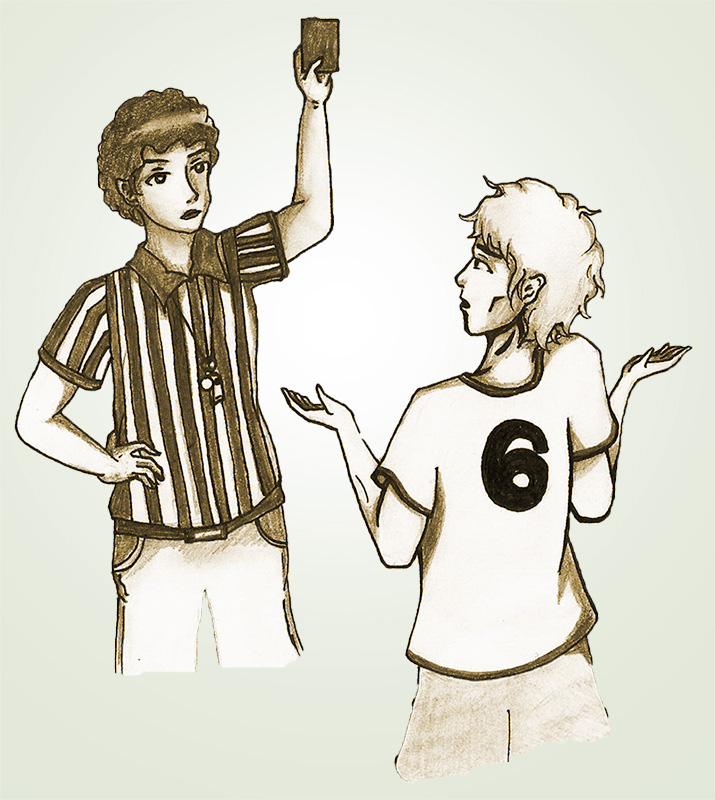
In any sport in which referees or umpires are a factor in the rule enforcement, there is going to be controversy. Umpires or referees are often the victims of much scrutiny in the sporting world. Heated debate between analysts during post-game talk shows is often directed at critical game calls by referees.
Aragon senior Michael Wraa, who is also an umpire and Chief of the Youth Umpiring Association, explains, “The pressure increases as you get into the end of the season with key rivalry games and playoffs. The pressure is a constant, but the amount of pressure changes based on the stakes of the game. It’s always a heavy burden, but [it is] one I and all other umpires know we have to welcome.”
Freshman Camille Nemschoff, a frosh-soph soccer player, says, “A referee can greatly impact a soccer match because they can prevent the players from playing correct soccer. For example, if a referee is not calling any fouls, it allows the players to play more aggressively and it can get out of hand.”
This holds true for baseball and softball as well. When an umpire is calling pitches that are balls strikes, he forces batters to chase pitches out of the zone. Olivia Di Santo, a freshman softball player and umpire, explains, “You have to roll with the punches and play your best no matter what. Umpires will make mistakes, and when those mistakes affect your team, it just means you have to work a little harder to make up for his or her mistakes.”
Athletes will often see the same officials throughout the season. This is a mixed blessing. Nemschoff explains, “Throughout the season, on occasion I see the same referees and it can either be a good or bad thing. If a ref has a bad reputation I usually am quicker to get frustrated. This is because if they’ve made bad calls in the past this shows that they’re skills have not improved.”
Di Santo explains how this can actually be used to a player’s advantage. She says, “When I see an umpire multiple times during my seasons, it helps me because I will already know where their strike zones are. I can adjust myself to where he or she thinks the strikes are, and I can tell my teammates what I know about the umpire.” Di Santo is able to use the errors of the umpire to her advantage and almost have an edge in the game because of that.
Wraa also states that both umpires and coaches can communicate complaints. He explains, “Umpires can always call their umpire-in-chief for their association. If there is an aggressive coach that an umpire reports to me, I will go work his game personally.” Umpires and referees can also personally eject a coach. In professional sports, when a coach or player becomes hostile or aggressive, you often see the official removing that coach from the premise.
According to BleacherReport.com, Major League Baseball umpires make the correct call 99.3 percent of the time. While the same cannot be said for the high school level of play, it is important to recognize that umpires mostly live without the luxury of instant replay and slow motion. Although they are often the center of attention and the victims of much criticism, sports officials provide a necessary and valuable service by maintaining the integrity of the game.



